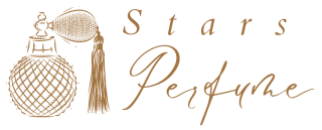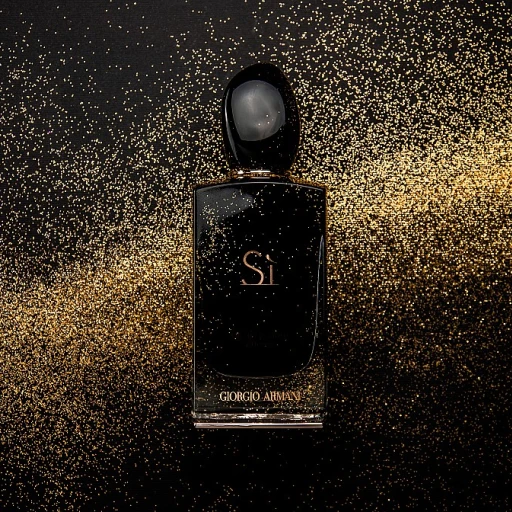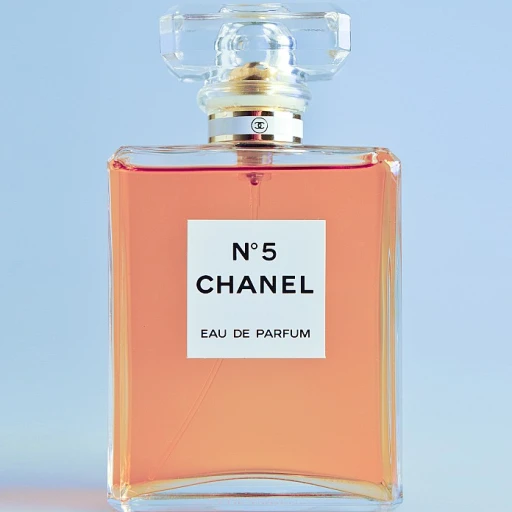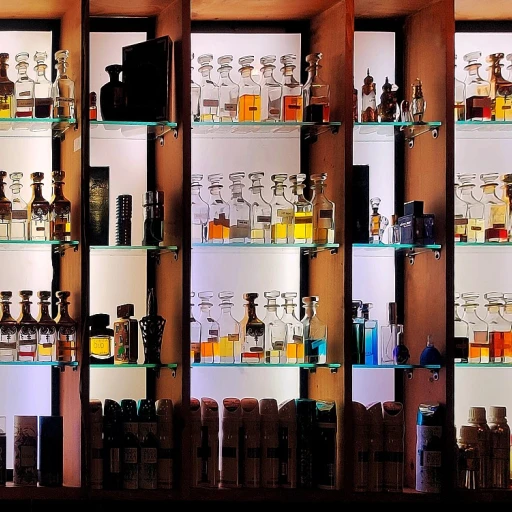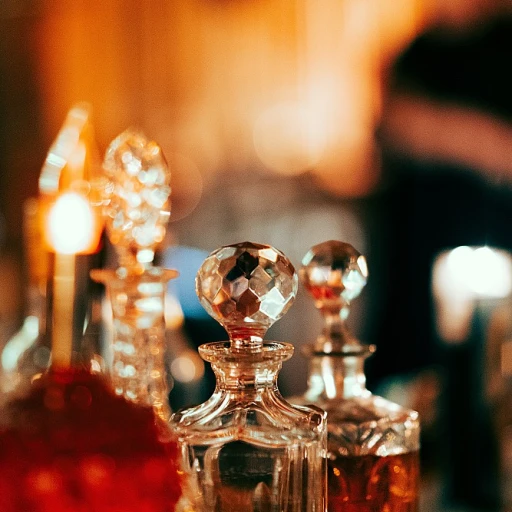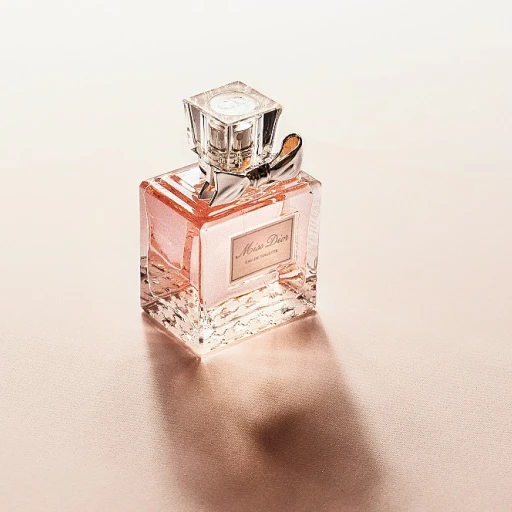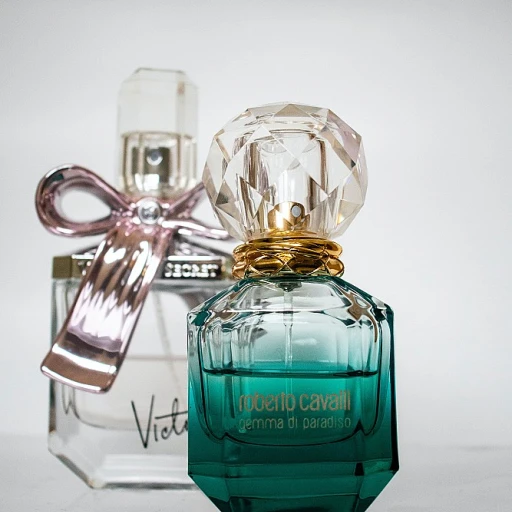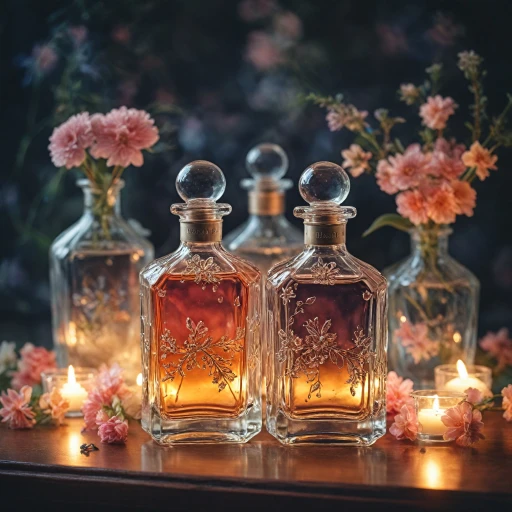
Understanding the origins of biblical perfume
The Roots of Fragrance in the Ancient World
The story of biblical perfume begins in the heart of the ancient Near East, where the lands now known as Jerusalem and Israel played a pivotal role in the evolution of scent. Perfume and incense were not just luxuries but essential elements woven into daily life, rituals, and spiritual practices. The bible itself is filled with references to aromatic oils, incense, and sacred blends, highlighting their importance in both personal and communal experiences.
Historical records and archaeological discoveries from the holy land reveal that the use of perfumes and eau was deeply rooted in the culture. From the Song of Solomon to the rituals described in the book of Exodus, fragrance was a symbol of purity, devotion, and even status. The price of certain oils and resins, such as myrrh and frankincense, was often equivalent to that of precious metals, underlining their value and allure.
- Incense and oil were used in temples and homes alike, marking moments of celebration, mourning, and worship.
- Scents like rose of Sharon, lily of the valley, and gedi essence are mentioned in biblical texts, evoking the landscape and spirit of the region.
- Perfume production in ancient Jerusalem was a sophisticated craft, with artisans blending botanical extracts to create unique essence blends.
Understanding the origins of biblical perfume offers a fascinating glimpse into the spiritual and cultural heartbeat of the ancient world. For those who wish to explore the deeper meaning behind these scents, the journey continues through the key ingredients, rituals, and the enduring legacy of these holy fragrances. For a deeper dive into the spiritual journey of fragrance, explore the essence of spirit perfume and its connection to ancient traditions.
Key ingredients in biblical perfumes
Signature Scents of the Holy Land
When we explore the world of biblical perfume, the ingredients themselves tell a story. The essence of Jerusalem, the holy land, and the broader region is captured in the natural materials that were highly valued in ancient times. These ingredients were not just for personal adornment—they carried deep spiritual and cultural meaning, as reflected in the Bible and other historical texts.
- Frankincense and Myrrh: These resins, often burned as incense or blended into oil, are perhaps the most iconic biblical perfumes. Sourced from trees in the Arabian Peninsula and Africa, they were prized for their aromatic, balsamic notes and spiritual significance.
- Spikenard: Known for its earthy, musky aroma, spikenard was used in holy anointing oils and is mentioned in the Song of Solomon. Its rarity made it a luxury, reflected in its high price and association with royalty.
- Rose of Sharon and Lily of the Valley: These floral notes, referenced in biblical poetry, evoke the lush landscapes of the region. Today, they inspire modern recreations like rose sharon and lily valley perfumes.
- Balm of Gilead: This resinous extract was valued for its healing properties and sweet, woody scent. It is often linked to the kings and prophets of ancient Israel.
- Cedarwood and Cistus (Labdanum): Woody and resinous, these ingredients were used in both sacred rituals and personal fragrance, symbolizing strength and sanctity.
From Ancient Oils to Modern Perfume
In biblical times, these ingredients were typically blended into oil—the precursor to today’s eau de parfum and eau de toilette. The books of the Bible mention anointing rituals using these precious substances, highlighting their importance in daily and spiritual life. Today, brands draw inspiration from these ancient recipes, offering modern interpretations like jerusalem eau, ein gedi essence, and lion judah fragrances. The legacy of biblical perfumes lives on in the reviews and experiences of fragrance lovers worldwide.
For those interested in the floral heart of biblical scents, the enchanting world of Turkish rose perfume offers a fascinating parallel, connecting ancient tradition with modern artistry.
| Ingredient | Role in Biblical Perfume | Modern Inspiration |
|---|---|---|
| Frankincense | Incense, anointing oil, spiritual rituals | Bible perfume, essence Jerusalem |
| Myrrh | Perfume, medicinal oil, holy ceremonies | Perfume holy, biblical perfumes |
| Spikenard | Luxury oil, royal fragrance | Song Solomon, king David perfumes |
| Rose of Sharon | Symbolic floral note | Rose Sharon, eau parfum |
| Lily of the Valley | Poetic floral, purity | Lily valley, eau parfume |
| Balm of Gilead | Healing, sacred oil | Gedi essence, Jerusalem Israel perfumes |
Understanding these ingredients is essential for anyone passionate about fragrance and eager to experience the rich olfactory tapestry of the holy land. Their presence in both ancient and modern perfumes bridges the past and present, offering a sensory journey through time.
Rituals and spiritual significance
The Sacred Role of Scent in Ancient Rituals
Perfume and incense held a profound place in the spiritual life of the ancient world, especially in the lands mentioned in the Bible. The use of biblical perfumes was not merely for personal adornment but deeply intertwined with religious ceremonies and daily rituals. In Jerusalem and throughout the holy land, the act of anointing with oil or burning incense was a way to connect with the divine, purify spaces, and mark significant events.
Symbolism and Spiritual Meaning
The essence of biblical perfume was often seen as a bridge between the earthly and the sacred. Fragrant oils like myrrh, frankincense, and spikenard were used in temples and homes alike. These ingredients, still found in some modern recreations of biblical perfumes, were considered gifts worthy of kings and were mentioned in the book of the Song of Solomon as symbols of love and devotion. The price of these precious oils reflected their spiritual value and their role in rituals of purification, blessing, and healing.
- Incense in Worship: Incense, such as the famed gedi essence, was burned in holy spaces to create an atmosphere of reverence and to symbolize prayers rising to the heavens.
- Anointing Oils: Perfume oils were used to anoint leaders, including kings of Jerusalem Israel, marking them as chosen and set apart for a divine purpose.
- Personal Devotion: Individuals would use eau parfum or oil as part of their daily spiritual practice, seeking connection with the sacred through scent.
Legacy in Modern Practice
Today, the spiritual significance of biblical perfumes continues to inspire fragrance lovers and those seeking a deeper connection to the traditions of the holy land. Modern reviews of products like essence Jerusalem, rose Sharon, and lily valley often highlight their ability to evoke the ancient rituals described in the bible. For those interested in exploring how fragrance can transform a spiritual experience, the allure of perfume remains as captivating now as it was in ancient times.
Recreating ancient scents today
Modern Methods Meet Ancient Traditions
Recreating the essence of biblical perfume today is a fascinating blend of historical research and modern perfumery. Artisans and fragrance houses draw inspiration from ancient texts, archaeological findings, and botanical studies to capture the spirit of perfumes once used in Jerusalem and throughout the holy land. The process often starts with identifying ingredients mentioned in the bible, such as frankincense, myrrh, spikenard, and balsam. These oils and resins, once reserved for rituals and royalty, are now carefully sourced to ensure authenticity and purity.
Challenges in Sourcing Authentic Ingredients
One of the main challenges in recreating biblical perfumes is the availability and price of genuine raw materials. Some plants, like the famed rose of Sharon or lily of the valley, are rare or have changed over centuries. Others, like the gedi essence from Ein Gedi, require sustainable harvesting to protect the environment. Modern perfumers must balance historical accuracy with ethical sourcing, often substituting or blending oils to achieve a fragrance profile reminiscent of the ancient holy land.
Crafting Perfume for Today’s Fragrance Enthusiast
Today’s biblical perfumes are available in various forms, from oil-based parfum to eau de toilette and eau de parfum. Brands often highlight their connection to Jerusalem Israel or the broader holy land, appealing to those seeking a spiritual or historical connection through scent. Reviews from fragrance lovers often mention the deep, resinous notes and the unique character of these perfumes, which stand apart from mainstream offerings. Some even reference the lion of Judah or the song of Solomon to evoke the biblical heritage behind the bottle.
- Perfume holy blends often feature incense and balsamic notes for a meditative experience.
- Essence Jerusalem and Jerusalem eau are marketed as direct links to the city’s ancient traditions.
- Bible perfume and biblical perfumes are popular among Christian collectors and those interested in the spiritual legacy of fragrance.
Experiencing the Legacy
For those passionate about ancient fragrance, exploring biblical perfume is more than a sensory journey—it’s a way to connect with the rituals, stories, and landscapes of the past. Whether you’re drawn to the oil blends of king David’s era, the floral notes mentioned in the book of Solomon, or the incense used in holy ceremonies, today’s recreations offer a tangible link to history. The enduring allure of these perfumes lies in their ability to evoke the sacred and the timeless, inviting fragrance lovers to experience the holy land through scent.
Cultural impact and legacy
Lasting Influence on Modern Fragrance Culture
The story of biblical perfume is not just about ancient rituals or sacred oils. Its legacy continues to shape the world of fragrance today. Many modern perfumes and eau de toilette draw inspiration from the holy land, echoing the essence of Jerusalem and the aromatic landscapes described in the bible. The influence of biblical perfumes can be found in the use of ingredients like frankincense, myrrh, and spikenard—materials that were once prized in the courts of kings and in the rituals of the temple.
Symbolism and Inspiration in Contemporary Perfumery
Contemporary perfumers often look to the bible for inspiration, creating scents that evoke the spiritual and cultural atmosphere of ancient Jerusalem. The essence of Jerusalem, for example, is recreated in perfumes that blend rose of Sharon, lily of the valley, and other botanicals mentioned in the bible. These fragrances are not just about aroma; they are about connecting with history, spirituality, and the stories of the holy land.
- Incense and Oil: The tradition of using incense and oil, central to biblical rituals, is alive in modern fragrance houses. Perfume holy blends and biblical perfume oils are crafted to capture the sacred aura of the past.
- Legacy in Names: Names like "lion of Judah," "song of Solomon," and "king David" are used for perfumes and eau parfum, reflecting the enduring fascination with biblical figures and stories.
- Global Appeal: Biblical perfumes are not limited to Jerusalem Israel or the holy land. Their influence is global, with products like gedi essence and ein gedi eau parfume reaching fragrance lovers worldwide.
Market Value and Reviews
The price of biblical-inspired perfumes varies widely, depending on the rarity of ingredients and the craftsmanship involved. Reviews often highlight the unique blend of ancient and modern, praising the authenticity and depth of these scents. Collectors and enthusiasts seek out bible perfume and essence Jerusalem for their connection to history and their distinctive olfactory profiles.
| Perfume Name | Main Notes | Connection to Bible |
|---|---|---|
| Rose of Sharon | Rose, spice, myrrh | Mentioned in Song of Solomon |
| Lily of the Valley | Lily, green, fresh | Referenced in the bible as a symbol of purity |
| Ein Gedi Essence | Herbs, incense, resin | Inspired by the oasis in the holy land |
For fragrance lovers, exploring biblical perfumes is a journey into the heart of ancient tradition and modern artistry. Whether through oil, eau de toilette, or parfum, the scents of the holy land continue to enchant and inspire.
How to experience biblical perfume as a fragrance lover
Ways to Connect with Biblical Perfume Today
For fragrance lovers, experiencing biblical perfume is a journey into history and spirituality. The scents that once filled the holy land, mentioned in the bible and used in ancient rituals, can be explored in several authentic ways today. Whether you are drawn to the essence of Jerusalem, the allure of incense, or the mystery of oils referenced in sacred texts, there are accessible paths to immerse yourself in these timeless aromas.
- Seek Authentic Biblical Perfumes: Many perfumers in Jerusalem Israel and the wider holy land region craft perfumes inspired by ancient recipes. Look for products labeled as biblical perfume, essence Jerusalem, or gedi essence. These often feature ingredients like frankincense, myrrh, spikenard, and the rose of Sharon, all mentioned in the bible and celebrated for their spiritual significance.
- Explore Perfume Oils and Eau de Parfum: Biblical perfumes are available as concentrated oils, eau de toilette, and eau parfum. Perfume holy oils, such as those inspired by king Solomon or king David, offer a direct connection to the rituals and traditions of the past. Reviews often highlight the depth and longevity of these ancient-inspired scents.
- Visit Museums and Exhibitions: Some museums in Jerusalem and other parts of the holy land feature exhibitions on ancient fragrance, incense, and perfume making. These experiences provide insight into the price, ingredients, and cultural context of biblical perfumes.
- Participate in Workshops: Hands-on workshops allow you to blend your own biblical-inspired perfume using oils and essences like lily of the valley, myrrh, and spikenard. These sessions often reference the book of Song of Solomon and other biblical texts, deepening your understanding of the spiritual and aromatic heritage.
- Shop for Niche and Artisan Brands: Look for niche brands offering Jerusalem eau, lion Judah parfum, or rose Sharon eau parfume. These products often come with detailed descriptions and reviews, helping you choose a fragrance that resonates with your personal connection to the bible and the holy land.
Tips for Savoring the Experience
- Read the story behind each perfume or oil to enrich your appreciation of its biblical roots.
- Layer biblical perfumes with modern scents to create a unique signature fragrance.
- Consider the price and authenticity—genuine biblical perfumes often use rare ingredients sourced from the holy land.
- Share your experience and reviews with other fragrance enthusiasts to help build a community around these ancient scents.
Whether you are captivated by the essence of Jerusalem, the mystery of incense, or the legacy of ancient kings, biblical perfumes offer a sensory link to the past. Embrace the opportunity to explore these fragrances, and let the aromas of the bible enrich your personal collection.
